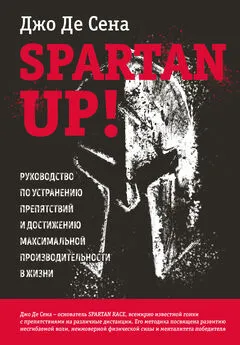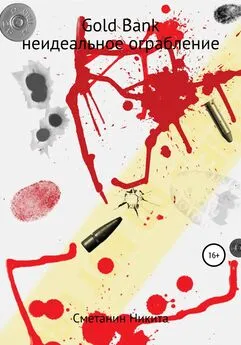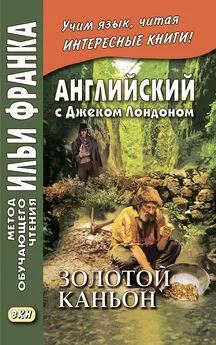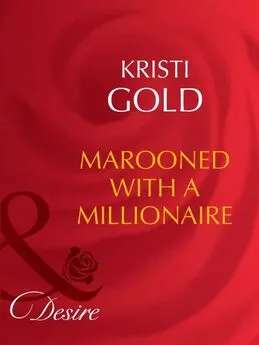Clive Cussler - Spartan Gold
- Название:Spartan Gold
- Автор:
- Жанр:
- Издательство:неизвестно
- Год:неизвестен
- ISBN:нет данных
- Рейтинг:
- Избранное:Добавить в избранное
-
Отзывы:
-
Ваша оценка:
Clive Cussler - Spartan Gold краткое содержание
The debut of a brand-new, action-packed series from the #1 New York Times bestselling master of 'pure entertainment'.
Thousands of years ago, the Persian king Xerxes the Great was said to have raided the Treasury at Delphi, carrying away two solid gold pillars as tribute. In 1800, Napoleon Bonaparte and his army stumble across the pillars in the Pennine Alps. Unable to transport them Napoleon creates a map on the labels of twelve bottles of rare wine. And when Napoleon dies, the bottles disappear.
Treasure hunters Sam and Remi Fargo are exploring the Great Pocomoke Swamp in Delaware when they are shocked to discover a World War II German u-boat. Inside, they find a bottle taken from Napoleon's 'lost cellar.' Fascinated, the Fargos set out to find the rest of the collection. But another connoisseur of sorts has been looking for the bottle they've just found. He is Hadeon Bondaruk - a half- Russian, half-Persian millionaire. He claims to be a descendant of King Xerxes himself.
And he wants his treasure back.
Spartan Gold - читать онлайн бесплатно полную версию (весь текст целиком)
Интервал:
Закладка:
“The safe bet would be on money,” Remi said. “Or something he could convert into money—a war chest the son could use to raise an army.”
Sam nodded. “Enough for a new Bonaparte emperor to reconquer France and maybe Europe.”
They signed off with Selma and headed back to the patio. They were halfway up the steps when Sam’s phone chimed. He checked the screen. It was Rube Haywood. Sam put it on speaker.
“I think I found the skeleton in Bondaruk’s closet,” Rube said.
“We’re all ears.”
“The guy I sent to talk to Bondaruk’s old Iranian handler—”
“Aref Ghasemi,” Remi said.
“Right. At first Ghasemi was a little cagey, but he finally opened up. He pretty much confirmed he handled Bondaruk all through the border war with the Russians. The details are sketchy on this part, but somewhere along the way Bondaruk got the idea that he’s a direct descendant of some ancient Persian king, a guy named—”
“Xerxes I,” Sam finished.
“Yeah, that’s it, how’d you know?”
Without going into too much detail Sam described the private Achaemenid Dynasty museum they’d found in the bowels of Bondaruk’s estate.
“Well, there’s your confirmation,” Rube said.
“What was Ghasemi’s take on this?” Sam asked. “Does he think Bondaruk could be from the Xerxes line?”
“He thought it was possible, but the thing you have to understand about Ghasemi is he’s a slippery fish. The Brits don’t buy anything he says without triple- or quadruple-checking it.”
“That seems like an odd story to make up,” Remi said.
“I thought so, too,” Rube replied. “Either way, Bondaruk’s spent millions researching this, so unless he’s certifiably insane he may have found proof to support his claim—at least in his own mind.”
Sam said, “Remi, remember what Kholkov told us in Marseille? About Bondaruk’s goal?”
Remi closed her eyes, recalling the conversation, and Kholkov’s words: “ ‘. . . the items involve a family legacy. He’s simply trying to finish what was begun a long time ago. . . . ’ ”
“This Xerxes angle could be the key,” Sam replied. “But what are the ‘items’? Something Xerxes lost long ago?”
“Another project for Selma and the gang.”
Rube said, “Whether his claim is true is irrelevant. He believes it, and it’s driving everything he does. What he’s after is a different story. Figure that out and you could be halfway home.”
“So we’re back to square one,” Sam said. “What in the world do Xerxes and the Achaemenid Dynasty have to do with Napoleon’s Lost Cellar?”

Sam awoke to the trilling of his iPhone. He rolled over. The red numerals of the LED display said 3:12 A.M. Sam grabbed the phone and checked the caller ID: BLOCKED.
He answered. “Hello?”
“I thought it was time we talked directly,” a voice said. “Without intermediaries.”
Still waking up, it took Sam a moment to place the voice. “You woke me up, Bondaruk. That’s just bad manners. I don’t suppose you’d like to tell me how you got my number?”
“Money is the great equalizer, Mr. Fargo.”
“Money is just money. It’s what you do with it that counts.”
“Spoken like a true do-gooder.”
Remi rolled over and sat up beside Sam. In answer to her questioning expression he mouthed, Bondaruk.
“What do you want?” Sam said.
“I’m curious: You were among the guests at my party, weren’t you?”
“We were standing right behind you during your lecture in the Sword Room. We got the distinct impression you like to hear yourself talk.”
“You’re brave, both of you, I’ll give you that much. You invaded my home, Mr. Fargo. If you were anyone else you’d—”
“Already be dead. Skip the threats and make your point. I’d like to get back to sleep.”
“I’m giving you one last chance. We work together. When it’s over, you get the bottles, I get what I’m after, and we part company. No harm done.”
“Speaking of what you’re after . . . It wouldn’t have anything to do with your private Persian funland below the laboratories, would it?”
Bondaruk didn’t answer.
“I thought so,” Sam said. “Bondaruk, don’t you think you’re taking your Xerxes infatuation a little too far? It’s not healthy.”
“You’re making a mistake, Mr. Fargo.”
“It seems to us that you’ve been making all the mistakes. By the way, we know your people have been casing our house in San Diego. If any of them so much as touch a newspaper in the driveway half the San Diego County Sheriff’s Department will fall on them like an avalanche.”
“So noted. This is the last time I’ll ask nicely.”
“Thanks for the warning.”
Sam hung up.
Remi said, “‘Private Persian funland’? Very imaginative.”
“I have my moments.”
CHAPTER 44
Armed with the next lines of the riddle and Yvette’s broadband Internet connection, Sam and Remi locked themselves in the study and went to work. Yvette, ever the gracious host, ordered Langdon to supply them with snacks and beverages, pens and paper, a second laptop, dry-erase markers, and a four-by-six-foot dry-erase board. On this they wrote the riddle in huge block letters:
Anguished House Fellows in amber trapped;
Tassilo and Pepere Gibbous Baia keep safe the place of Hajj;
The Genius of Ionia, his stride a battle of rivals;
A trio of Quoins, their fourth lost, shall point the way to Frigisinga.
They began by compiling a list of synonyms for each word that easily lent itself multiple meanings. They counted sixteen: “anguished,” “House,” “Fellows,” “trapped,” “Gibbous,” “keep,” “safe,” “place,” “Hajj,” “Genius,” “stride,” “battle,” “rivals,” “trio,” “point,” “way.”
From these they generated a list of dozens of words. Those they wrote on the board’s opposite side in a spiderweb-like chart, branch leading to thread leading to question marks.
Next they turned their attention to words they felt had clear links to history—“amber,” “Tassilo,” “Baia,” “Hajj,” “Genius,” “Ionia,” “Quoins”—which they also placed on the board, in their own separate columns and lists. Once done they divided up the words and began scouring the Internet for historical references, which they plugged into briefs of each word.
Five of the words—“amber,” “Tassilo,” “Baia,” “Hajj,” “Ionia”—had links to well-known places, peoples, or things. Amber was a fossil resin used for jewelry; Tassilo was the given name of a long line of Bavarian kings; Hajj was the name of the yearly Islamic pilgrimage to the holy site of Mecca; Baia, which meant “mine,” was the name of a commune in Romania on the Moldova River; and Ionia was a Greek island in the North Aegean Sea.
Unfortunately, like their list of synonyms, each of these historical references was in itself a web of facts and double meanings and cross connections.
Breaking only to eat and drink and refresh themselves in the study’s attached bathroom, Sam and Remi kept at it through the morning into late afternoon until finally they decided on a different tack: to focus their attention on a single line of the riddle, hoping its solution would start a domino effect. They decided to try the second line.
“ ‘Tassilo and Pepere Gibbous Baia keep safe the place of Hajj,’ ” Remi recited, absently tapping her temple with a pencil. “ Pepere is easy. It’s a French nickname for ‘grandfather.’”
“Right. And unless we’re missing some other significant reference to Tassilo, we can assume it’s a reference to Bavaria—its history, its landmarks, its culture. Something Bavarian.”
“Agreed. How about ‘Gibbous Baia’?”
They’d already devoted two fruitless hours to Romanian history in hopes of stumbling across an epiphany about the Baia area.
“ ‘Gibbous’ means a moon that’s between half and completely full.”
“Are we sure about that part?”
“Yes, a gibbous moon is—”
“No, I’m asking if that’s the only meaning.”
Sam thought for a moment, then frowned. “I’d assumed so. Maybe I shouldn’t have.” He picked up and shoved books around the desk until he found the dictionary. He found the correct page, scanned the entry, then clicked his tongue. “Dumb, Sam. . . .”
“What?”
“ ‘Gibbous’ also means ‘humpbacked.’ So Gibbous and Baia . . .”
Remi was already typing on the laptop. Though much of their in-depth references had come from library sites, their default starting point was good old Google. “Here . . . got something,” she said after a few minutes of reading. “Put the two together and you get this: Baia is part of a phrase—‘men of Baia.’ It’s a rough translation for the word ‘Bavaria.’ ”
“So, the Humpback of Bavaria?” Sam asked.
“No, no . . .” Remi tapped the keyboard again and scanned the search results. “Gotcha! Okay, Tassilo III, the king of Bavaria from 748 to 787, was installed on the throne by Pepin the Short, father of Charlemagne and grandfather of Pepin the Hunchback .”
“Now we’re talking,” Sam replied. “So Tassilo and the hunchback’s grandfather, Pepin the Short, ‘keep safe the place of Hajj.’ ”
“Problem is I can’t find any connection between either of them, or Bavaria, to Mecca.”
“It has to be a metaphor or a synonym,” Sam replied.
“Yes, or maybe an Islamic artifact somewhere in Bavaria.”
Sam, now on his own laptop, did a quick search. “Nope, nothing jumps out. Let’s keep going. Try another line.”
“We’ll go back to the beginning: ‘Anguished House Fellows in amber trapped.’ We’ve already got the etymology and synonyms for ‘anguished,’ ‘House,’ ‘Fellows,’ ‘amber,’ and ‘trapped.’ So how do they all intersect?”
Sam plopped down in a chair and leaned his head back, squeezing the bridge of his nose between his index finger and thumb. “I don’t know. . . . Something about the line is familiar, though.”
“Which part?”
“I don’t know. It’s right there. I can almost see it.”
They sat in silence for nearly a half hour, each wrapped in thought, their minds swirling with connections and possible connections.
Finally Remi looked at her watch. “It’s almost midnight. Let’s get some sleep and come back to it fresh in the morning.”
“Okay. It’s frustrating. I know I’m missing something, I just can’t put my finger on it.”

Four hours later as they lay asleep in Yvette’s guest suite Sam bolted upright in bed and muttered, “There you are!” Remi, a light sleeper, was instantly awake: “What? What’s wrong, Sam?”
“Nothing. I think I’ve got it.”
In their pajamas they returned to the study, turned on the lights, and powered up their laptops. For twenty minutes Sam sat at the keyboard, typing and following links as Remi watched from the corner chair. At last Sam turned around and smiled.
“It’s from a book I read in college— The Days of the Upright by a guy named . . . Roche. He talks about the origin of the word ‘Huguenot.’ ”
“French Calvinists, right?” Remi asked. “Protestants.”
“Right. Pretty big group from the sixteenth to eighteenth century. Anyway, there are a lot of explanations for where the word ‘Huguenot’ comes from. Some think it’s a hybrid—from the German word Eidgenosse , meaning ‘confederate,’ and the name Besan çon Hugues, who was involved in early Calvinist history.
Читать дальшеИнтервал:
Закладка:

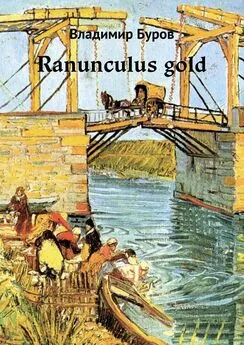
![Джо Сена+ - Spartan up! Руководство по устранению препятствий и достижению максимальной производительности в жизни [litres]](/books/1059232/dzho-sena-spartan-up-rukovodstvo-po-ustraneniyu-pr.webp)

